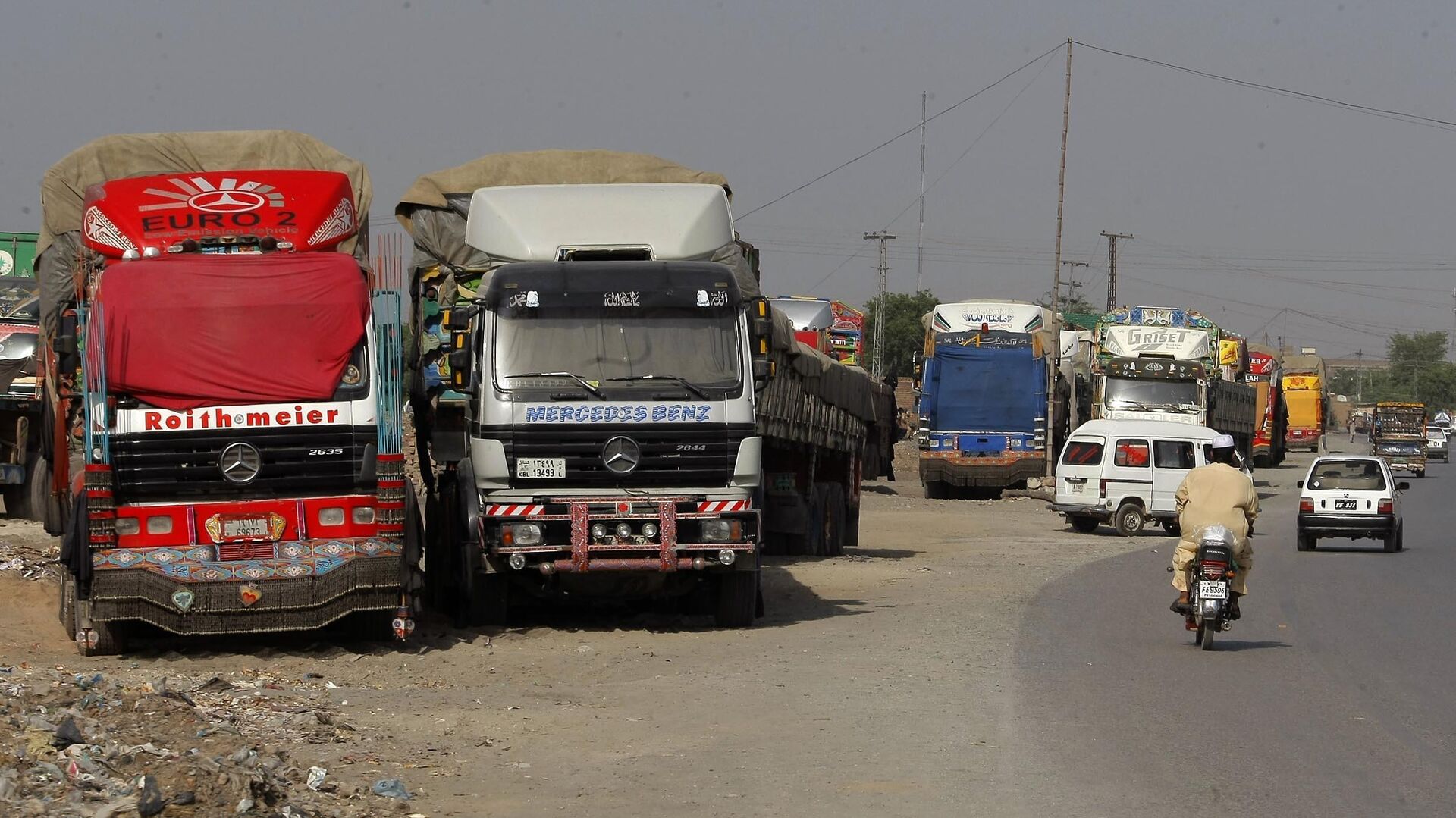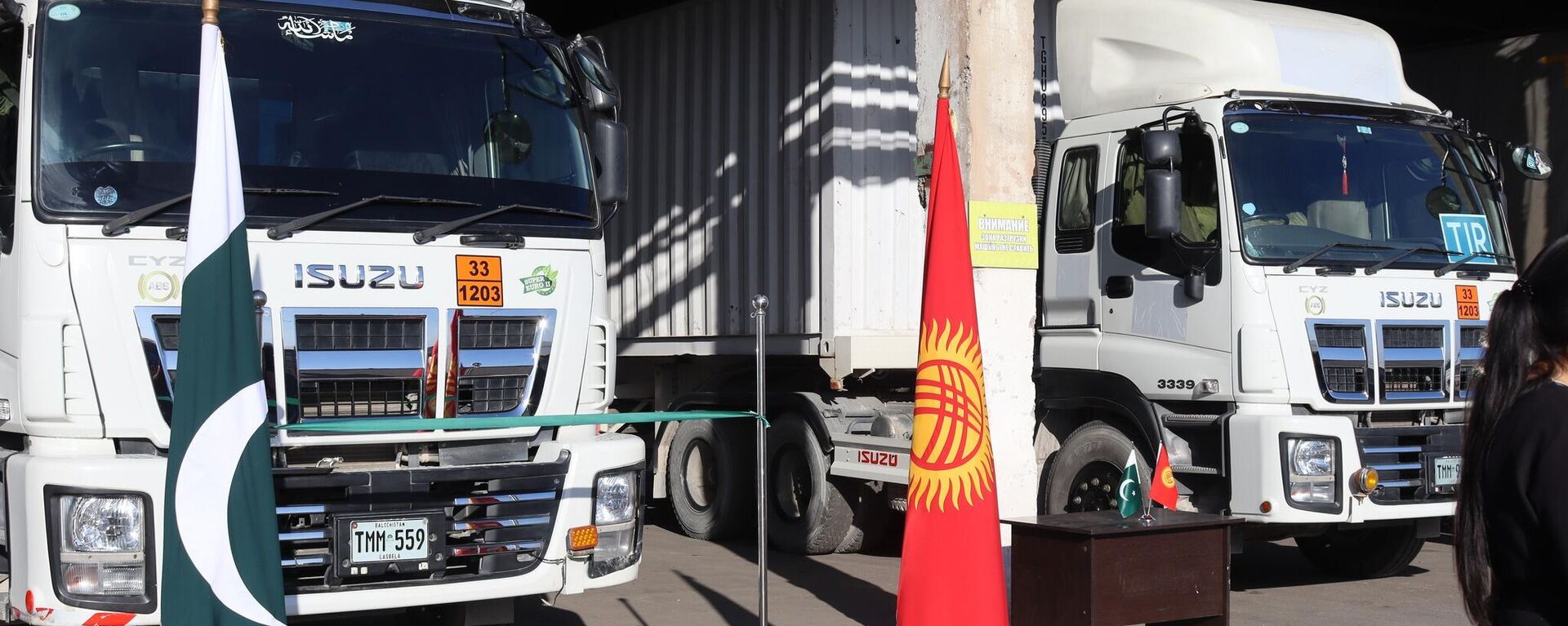https://sputniknews.in/20240529/pakistan-seeking-alternative-trade-routes-amid-rift-with-afghanistan-7475815.html
Pakistan Seeking Alternative Trade Routes Amid Rift With Afghanistan
Pakistan Seeking Alternative Trade Routes Amid Rift With Afghanistan
Sputnik India
Pakistan has established new corridors through Tajikistan connecting it to Central Asian markets, initiating a new chapter of economic engagement with the region.
2024-05-29T16:19+0530
2024-05-29T16:19+0530
2024-05-29T16:19+0530
pakistan
tajikistan
islamabad
afghanistan
https://cdn1.img.sputniknews.in/img/07e8/03/0f/6838423_0:77:2422:1439_1920x0_80_0_0_e4a91e2957fc71a0989687ee778e7c31.jpg
According to the Ministry of Information and Broadcasting Government of Pakistan, during discussions about increasing bilateral trade and investment between Pakistan and Tajikistan, the governmet expressed its intention to utilize the Central Asian country's transit opportunities to penetrate the markets of the region.Bouth countries have established friendly relations since Tajikistan's independence in 1991. However, this time, issues with Afghanistan forced Pakistan to use the Chinese route to access the Central Asian markets, including the counterpart.On Wednesday, during a recent meeting between the Economic Development, Ministers of the two states expressed readiness to exploit the transport corridors of two lands. Pakistan indicated its willingness to use Tajikistan's transit routes as a gateway to Central Asia.The ministers also discussed investment opportunities in sectors like mining, textiles, and energy and proposed creating joint ventures between companies from the two countries. Both parties assured that they would start at least one direct flight a week from Tajikistan to Pakistan.Hence, Pakistan previously had limited trade with Central Asian Republics. After this deal, the government aims to become a crucial trade and transit hub, connecting Central Asia to the global market and leveraging its strategic geographic location.
https://sputniknews.in/20231207/pakistan-arranges-trade-with-central-asia-and-russia-bypassing-afghanistan-5748084.html
pakistan
tajikistan
islamabad
afghanistan
Sputnik India
feedback.hindi@sputniknews.com
+74956456601
MIA „Rossiya Segodnya“
2024
Muhammad Sharif
https://cdn1.img.sputniknews.in/img/07e7/0b/05/5257054_0:0:443:444_100x100_80_0_0_b8bd2af32be62a6eecdb4a84c7fd978f.jpg
Muhammad Sharif
https://cdn1.img.sputniknews.in/img/07e7/0b/05/5257054_0:0:443:444_100x100_80_0_0_b8bd2af32be62a6eecdb4a84c7fd978f.jpg
News
en_IN
Sputnik India
feedback.hindi@sputniknews.com
+74956456601
MIA „Rossiya Segodnya“
Sputnik India
feedback.hindi@sputniknews.com
+74956456601
MIA „Rossiya Segodnya“
Muhammad Sharif
https://cdn1.img.sputniknews.in/img/07e7/0b/05/5257054_0:0:443:444_100x100_80_0_0_b8bd2af32be62a6eecdb4a84c7fd978f.jpg
pakistan, tajikistan, afghanistan, routes, trade, transition
pakistan, tajikistan, afghanistan, routes, trade, transition
Pakistan Seeking Alternative Trade Routes Amid Rift With Afghanistan
Pakistan has established new corridors through Tajikistan connecting it to Central Asian markets, initiating a new chapter of economic engagement with the region.
According to the Ministry of Information and Broadcasting Government of Pakistan, during discussions about increasing bilateral trade and investment between Pakistan and Tajikistan, the governmet expressed its intention to utilize the Central Asian country's transit opportunities to penetrate the markets of the region.
Bouth countries have established friendly relations since Tajikistan's independence in 1991. However, this time, issues with Afghanistan forced Pakistan to use the Chinese route to access the Central Asian markets, including the counterpart.
On Wednesday, during a recent meeting between the Economic Development, Ministers of the two states expressed readiness to exploit the transport corridors of two lands. Pakistan indicated its willingness to use Tajikistan's transit routes as a gateway to
Central Asia.
The ministers also discussed investment opportunities in sectors like mining, textiles, and energy and proposed creating joint ventures between companies from the two countries. Both parties assured that they would start at least one direct flight a week from Tajikistan to Pakistan.
Moreover, they agreed to increase trade turnover and fully utilize the existing potential between the states. In 2022, the two nations signed an agreement to develop trade, transportation, and favorable conditions for imports and exports. By the end of 2023, their bilateral trade volume had reached $52.7 million, growing 1.6 times compared to 2022.
Hence, Pakistan previously had limited trade with Central Asian Republics. After this deal, the government aims to become a crucial trade and transit hub, connecting Central Asia to the global market and leveraging its strategic geographic location.



